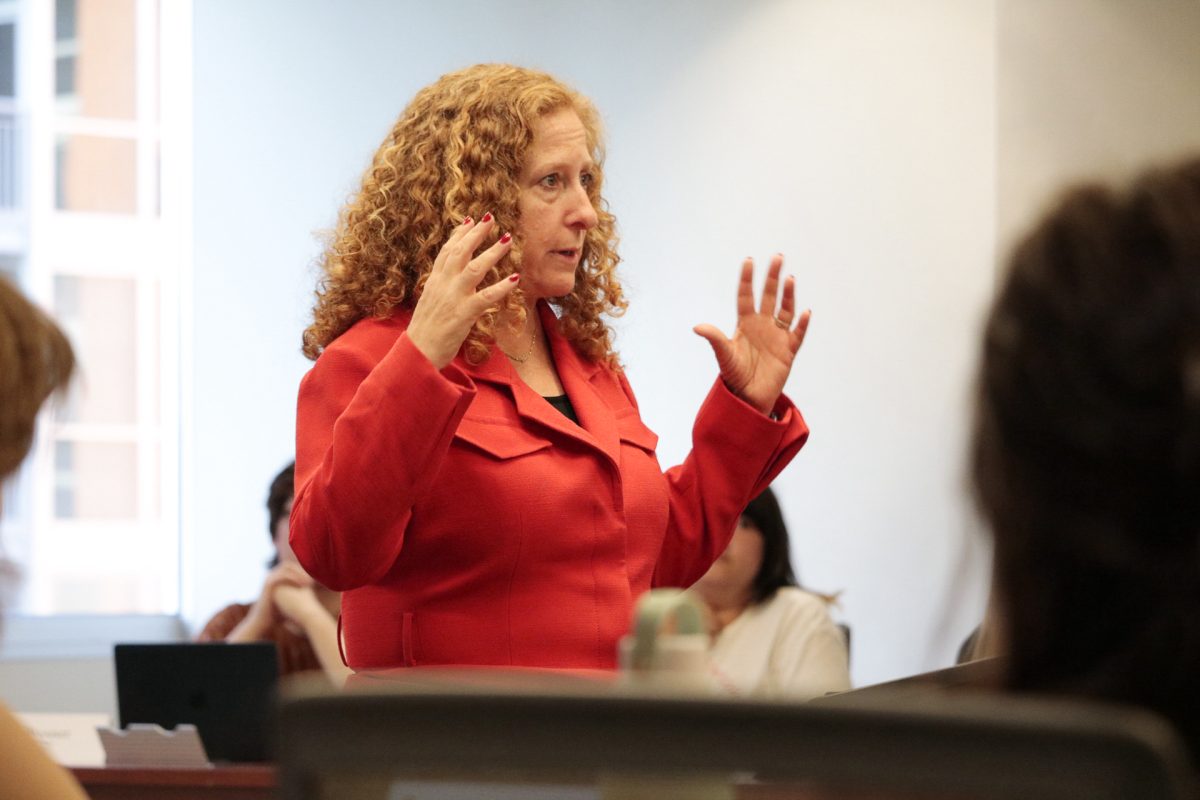Madison has been host to a recent spree of gun-related crimes. Over the last two months, an estimated 30 armed robberies have occurred within the area. The criminals have targeted everything from tavern goers to small businesses, Madison police said.
Madison Police also reported that while the attacks aren’t necessarily related, they have narrowed the crimes to three categories: armed robbery of open business, armed robbery of employees leaving or cleaning a business, and muggings. The report also showed that the offenses occurred in the western areas of Whitney Way, Gammon Road, and Sherman Avenue.
A little more than a week ago, two college-age students were held at gunpoint on North Henry Street while an unidentified male demanded their money.
Only days before that, a pizza-delivery driver on Main Street was forced to the ground while a man with a gun took his money.
Although these two events happened within only days of each other and reflect current
crimes in the city, UW Police Sgt. Pete Ystenes says they are not typical crimes on the UW campus and its neighboring streets.
“We respond to quite a bit of property crime, simple theft and burglary,” Ystenes said about the area.
Even though the victims of these crimes weren’t technically assaulted on campus property, these crimes affect the campus community in which they occurred.
“[On Henry Street,] one of the victims was a UW student and the other attended Edgewood,” Madison Police Officer Larry Kahmolz said.
On campus versus off campus
Crime trends also show that more local offenses have occurred on the UW campus than in nearby areas. A report by UW Campus Safety for the year of 2001 estimated a total of 175 criminal offenses on campus property, with 119 burglary cases. For non-campus areas the same offense category held only an estimated 31 occurrences, with 12 burglaries.
Ystenes attributes high theft rate to the campus’ structure.
“It’s a very open campus, with large accessibility [to university buildings and student residences] we have people who come here and steal,” Ystenes said.
He also said the offenders aren’t limited to any specific category.
“Most of the time, non-students with no affiliation to the university at all will come and steal,” Ystenes said. “We also deal with students and faculty members [who steal].”
Furthermore, Memorial Union and the Southeast dorms have high levels of theft-related activity.
The report shows that campus criminal-offense statistics are on a dramatic increase. Compared to 1999 and 2000, the incidents in 2001 increased by 51 percent. For non-campus areas, this statistic actually decreased by 3 percent.
Sexual assault is another category the report shows with high offense numbers. In 1999 campus areas accounted for seven forcible sex offenses. By 2001 the number had doubled to 14 cases. Non-campus-area statistics remained steady with 4 occurrences.
UW courses offer protection
While the UW campus is generally a safe area, serious offences like sexual assault and battery do occur. Ystenes says students can take action to prevent these incidents.
“People should always stay in groups,” Ystenes said, “especially [at night], and if you’ve consumed alcohol; [perpetrators] are looking for that situation.”
While staying in large groups is one method of prevention, students are taking an initiative and arming themselves with other abilities to stave off offenders.
UW graduate student Katy Reedy teaches a self-defense class to undergraduates. Having taken the class as an undergraduate at UW, Reedy believes the course to be effective and educational.
“The main emphasis of the class is to learn self-defense against a single offender, “Reedy said, “because 80 to 90 percent of assaults are done that way.”
Reedy’s course teaches students how to defend themselves when standing up by using wrist grabs and other ground-fighting techniques. She also said her class informs students about crime awareness, situation avoidance, and how to de-escalate dangerous situations.
While the class is offered to anyone attending UW, the majority of Reedy’s students are females.
“I think it’s a really powerful thing for [the women] to see what they could do if they had to,” Reedy said.
Furthermore, Reedy says her class reinforces the idea that women can be safety conscious and are capable of handling a confrontation.
UW senior Kenya Patterson says she took the class primarily as a stress reliever but feels there are other benefits to the class.
“I wanted to reassure myself that I could get away from an attacker if I needed to,” Patterson said. “[The class] teaches you a lot of common sense things that you would have never known.”
Although Patterson has taken self-defense courses in the past, she feels this class has made her well rounded and knowledgeable of different defense techniques.
Female protection
Reedy is also a participant in UW’s Chimera training, a defense method combining vocal assertiveness with physical abilities.
The group’s website states, “The Chimera is a female mythical beast whose name has come to be associated with an imaginary fear, [and] the fear that they are helpless to defend their own security is one which Chimera is dedicated to defeat.”
Basic Chimera is offered to individuals in a one-hour session, while full routine instruction lasts 12 hours.
“Anyone is welcome to the hour group,” Reedy said, “The full-length group is only open to women.”
Reedy says the female exclusiveness is due to the heavy physical contact Chimera participants experience.
Reedy also said, “Men and women have different concerns when it comes to sexual assault and self-defense.”
Aside from teaching UW students, Chimera instructors also travel to middle schools and churches to provide the community with defense abilities.
“[The clinics] have gotten a very positive response, “Reedy said. ” A lot of women get the message growing up that it’s a dangerous world and there’s not a lot we can do. But we need to realize that we do have options.”
Chimera coordinator Cheri Dubiel says other student organizations help sponsor the defense workshops and meetings. In the past, Barnard Hall, Witte Hall, and the Women’s Law Association have hosted Chimera classes.
“We really try to differentiate ourselves from other self-defense groups,” Dubiel said. “Consistently we get high evaluations.”
Dubiel also says that she has witnessed a change in participants over the course of the class.
“Taking the class one time is pretty valuable,” Dubiel said. “[People leave] having more assertiveness and self-awareness.”












